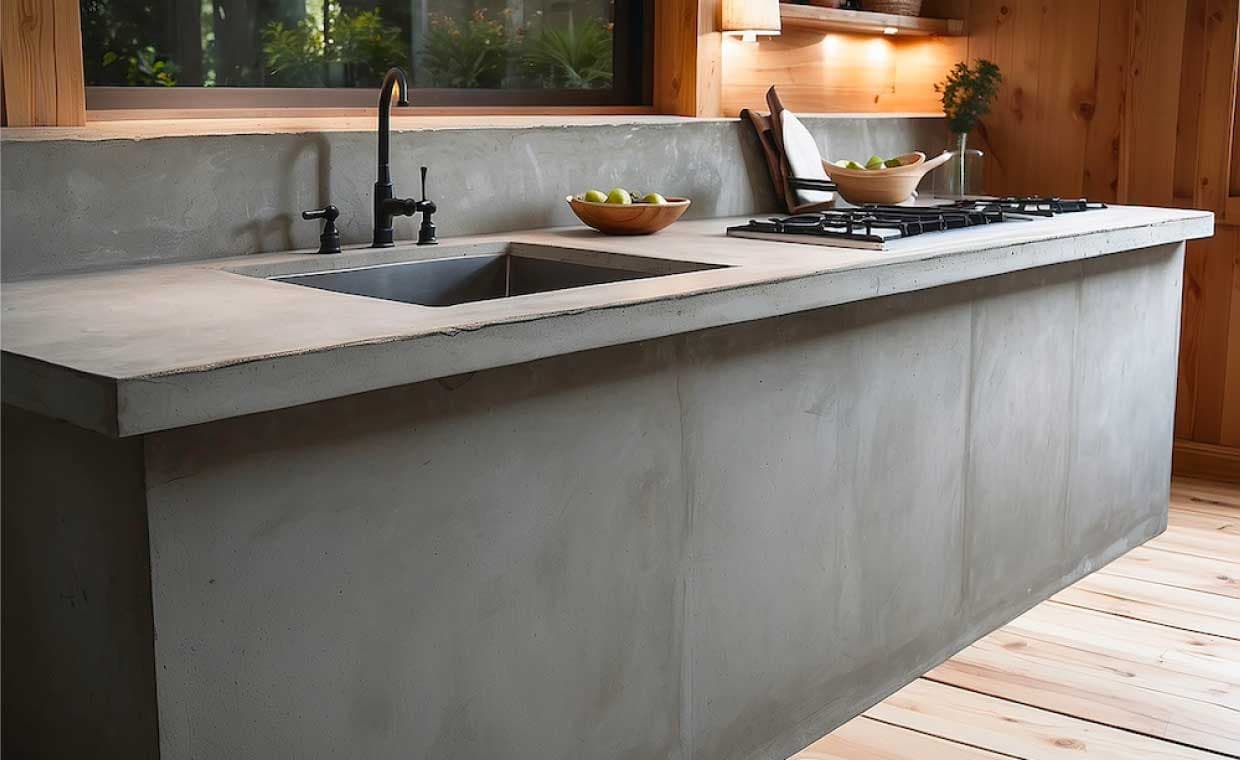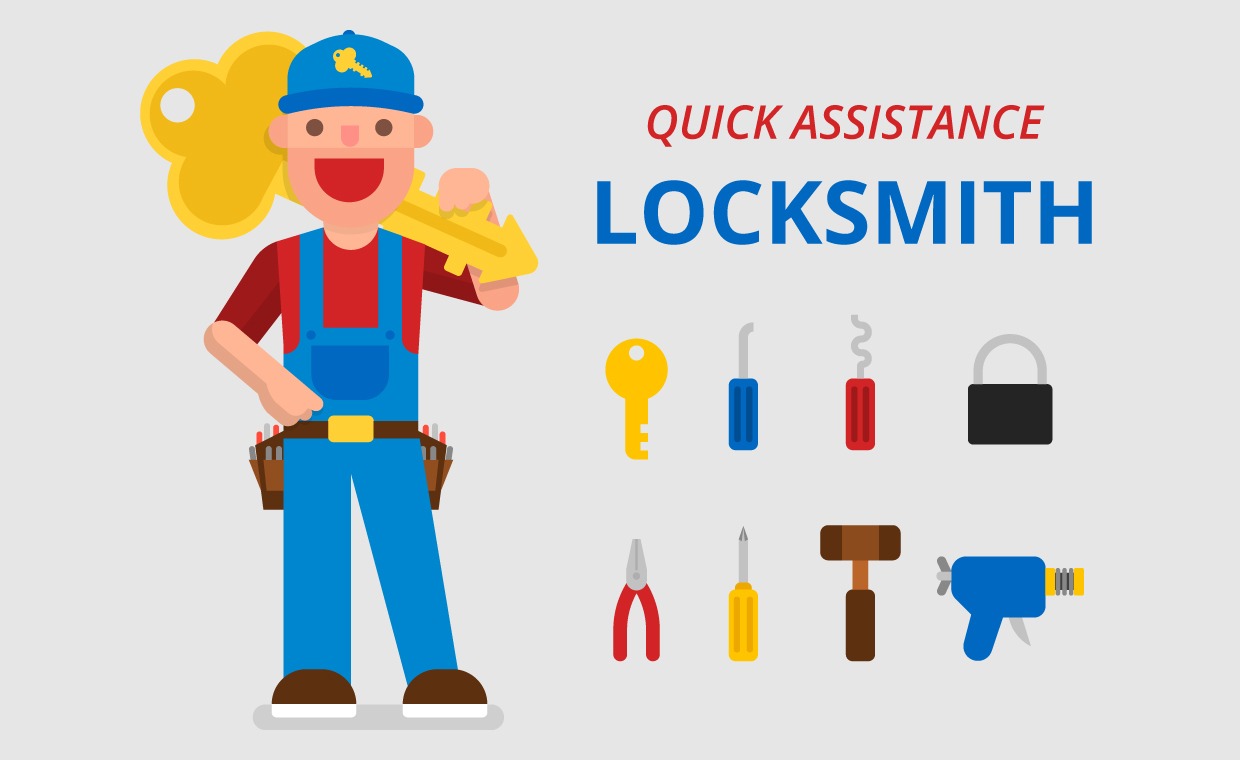
Do you want to give your home a rustic but industrial feel that’s fashionable and unfussy? Then concrete countertops are the best option. Having a concrete countertop in your kitchen can add so much to the style and ambiance of the room. Not only does it look great, but it is also highly durable. The other good thing about concrete countertops is that they don’t chip or scratch easily like other countertop materials, making them an excellent option for busy kitchens. So, let’s understand the pros and cons of concrete kitchen countertops in detail.
Advantages of Concrete Countertops
01. Durable
Concrete countertops are durable, tough, and hard. It is a long-lasting kitchen countertop material.
02. Easy Customisation

Concrete countertops are mouldable into various shapes and forms compared to other materials. You can create curves or angles after deciding on the form. You can make unique countertop design configurations. It is effortless to create holes for sink and soap dispensers and even add a peninsula while creating the shapes.

- You can directly incorporate cutting boards into the countertop for functionality and design.

Courtesy - Houzz
03. Aesthetics

Concrete countertops can be coloured or pigmented with dyes to give them a natural, polished look. Depending on the design and size of your countertops, you can have a smooth, and seamless concrete surface.
04. Designs Options

Courtesy - Concretenetwork , Monterey Bay Cast Stone
The concrete design blends well with both traditional and contemporary designs. You can beautify the surface of the concrete countertop with embedded stones, glass chips, colourful marble or tiles. You can also add recycled glass, shells, and even fibre-optic lights.
05. Scratch Resistant

It can withstand heat, scratches, and stains. Although concrete is not scratch-proof, it can resist scratches, particularly when compared to other softer countertop materials like laminates, marble, etc.
06. Ease of Maintenance

Concrete countertops are less prone to decay. They are easy to clean when built and sealed properly. Warm water is the best way to clean them. For heavy cleaning, follow the contractor’s instructions, or use a pH cleaner that won’t damage the sealant. Avoid using abrasive, acidic cleaners.
Well-maintained and sealed concrete countertops last for a long time and can be used both indoors and outdoors.


07. Increase Home Value
Homes with concrete countertops will increase their resale value because concrete is a premium countertop material.
You can see from above how advantageous concrete countertops are. If you want to know the some basics of concrete countertops then read the following article:
Concrete Countertops: All You Like to Know!
Now, let’s understand the disadvantages of concrete countertops.
Disadvantages of Concrete Countertops
01. Expensive
They are costly as compared to granite, marble, or quartz countertops. The cost depends on various factors like size, shape, thickness, finish and colour, as well as additional features like backsplashes, edge designs, inlays, or decorative aggregates. You can save money by using recycled materials and limiting customisation.

Your expenses can also shoot up, as you need a skilled and experienced person to fix them for you. If you are installing yourself, then you must be well prepared to work hard and long for the installation and finishing work.
02. Prone to Chipping and Staining

Discolouration may happen depending on the usage over a while. Concrete shrinks when it dries, leading to cracks and gaps. But these cracks are repairable. Concrete requires proper sealing, failing which causes stains. Make it a point to wipe the spills on the countertops immediately, especially if they are acidic, like lemon juice, vinegar, red wine, etc. Even a few minutes of exposure can cause stains on concrete countertops. Placing hot pans or pots on concrete countertops can damage the top surface and sealant. Cutting with sharp knives directly onto the countertop can cause damage, too.
03. Heavy Weight
Concrete is heavy, and hence reinforcement materials must be added to lighten the weight of the cabinetry supporting it. This additional labour can add up quickly, so unless you’re willing to invest in additional structural support, this might not be the best choice for your needs. Lightweight concrete material is also available on the market, which is much lighter than regular concrete; however, it is less durable.
04. Prone to Cracks

Hairline cracks may occur on all concrete countertops. We cannot prevent them fully, but we can minimise them. Most of the time, the hairline cracks are hardly noticeable, and some homeowners feel that they enhance the look of the counter. In extreme cases, when they become wider, these cracks can cause severe damage to concrete countertops and break them completely. Keep in mind that this is rare and occurs only due to a bad concrete mix or bad installation. Wiping spills and avoiding direct heat and cutting will prevent hairline cracks.
To Sum up, if you install concrete countertops, you do not have to worry about replacing them for decades. However, if you do not like them after a few years, don’t like their style, or just want a new look, it is not easy to remove concrete. It requires a team of professionals to remove the concrete countertops without damaging the kitchen cabinets.
And before you leave don’t forget to read the following article:






























